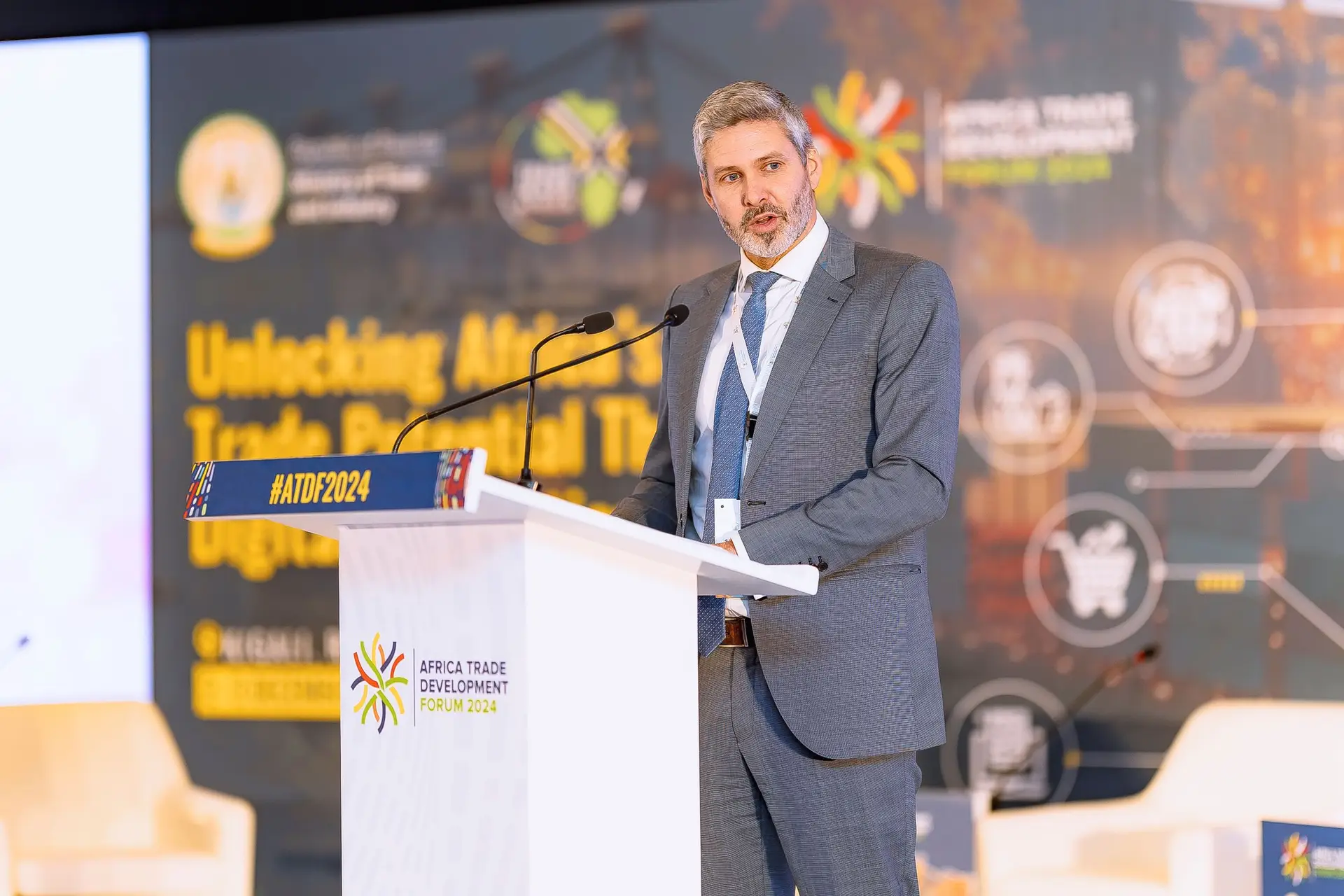Trade connects communities, strengthens markets, and drives prosperity. At TradeMark Africa (TMA), we believe an integrated, digitally connected, and sustainable trade system is essential in realizing the continent’s full potential. Over the past year, the first of our new strategy’s implementation, TMA has continued to lay the foundations for this while tackling new challenges and expanding our focus. How this is done also matters: throughout this report, you will see some recurring words and themes, including digital, innovation, and impact. These words are key to how TMA conceives our mission.
A major driver of the results we have seen over the last few years has been digitalization, which streamlines trade processes, simplifies requirements, and reduces the potential for human error and interference. This last year, together with our partners, we have continued to introduce digital systems that make a substantive difference to cross-border trade. Take Tanzania’s Mifugo system, which TMA helped the Government of Tanzania to put in place, enabling traders importing and exporting livestock and fish products to get their regulatory documents online. This has reduced the time taken to issue permits from 14 days in 2022 to just one hour in 2024 while doubling Government revenue collection in this area. During the year, we have also begun a number of initiatives that you will read about in these pages, not least working with the Government of Djibouti to develop a Fleet Management System, which is expected to reduce trade costs by 10%, cut clearance times by 30%, and boost targeted exports by 15%.
Systems also need an effective regulatory framework to succeed. TMA has been supporting the African Continental Free Trade Area (AfCFTA) in developing its Digital Trade Protocol, a framework that supports the integration of Africa’s digital trade through enhancing SME participation in intra-regional trade, promoting financial inclusion, and facilitating the interoperations of trade-related digital platforms. The state parties of the AfCFTA adopted the Protocol in February 2024.
In recent years, TMA has also pushed the envelope in next-generation trade solutions. In partnership with the IOTA Foundation, TMA has, for example, pioneered the Trade Logistics Information Pipeline (TLIP) to eliminate the use of paper and enable seamless data exchange between customs authorities, logistics providers, and traders. Crucially, it creates trust through using distributed ledger technology that makes it impossible to alter any data entered, thereby reducing the need for reverification at various stages, which significantly adds to the cost and time of processing transactions. Pilot cases between Kenya and the Netherlands already show shortened transit times and reduced transaction costs for goods. We are excited by the possibilities of using such technology to incorporate new requirements imposed on exporters, such as traceability, into existing processes. Building on this, TMA is working with like-minded international entities to explore a neutral and not-for-profit propagation of this technology.
Making trade more efficient is not only about next-generation solutions. TMA continues to complete high-impact physical infrastructure projects to enhance connectivity, lower costs, and promote sustainability – the essential drivers for thriving trade. As part of this, TMA has been working to enhance trade around Lakes Tanganyika and Kivu, facilitating upgrades at ports along the coastline. We have also been addressing bottlenecks in transporting goods out of Mombasa port, handing over the Mbaraki-Nyerere Road to the Mombasa County Government in February 2024, which has cut travel times by over half and lowered truck turnaround times at Mombasa Port’s container and oil terminals from 26 to 15 hours. Additionally, we are working to support the operationalization of the LAPSSET Corridor through Lamu Port, building on our investments to enhance efficiencies at Moyale Border Post, with diagnostics and facilitation of technical progress. Ethiopia celebrated a milestone in April 2024 with its first bulk import of fertilizers through Lamu Port.
According to the African Development Bank, 70% of Africa’s informal cross-border traders are women, who often face challenges not typically encountered by men. One of these is balancing childcare needs with their work. An endline evaluation for support to informal traders showed this year that targeted female traders saw an increase in monthly sales. TMA has built six markets specifically for female cross-border traders in Rusizi, Busia, Tog-Wajaale (on both the Somaliland and Ethiopian sides), Moyale, and Berbera. We also opened Berbera Fish Market in June 2024, creating cold store facilities for the first time. All the markets are designed to cater to the unique needs of women traders and offer amenities such as free stalls, secure environments, breastfeeding rooms, ablution blocks, solar energy, refrigerated facilities, and prayer rooms where appropriate.
TMA will continue to collaborate closely with Governments, businesses, and regional bodies to expand intra-African trade and grow exports to global markets. In the coming year, we will prioritize digital trade expansion, strengthen trade corridors, embed sustainability in trade practices, and drive economic empowerment. Unlocking Africa’s full trade potential requires collaboration, innovation, and decisive action at every border.


